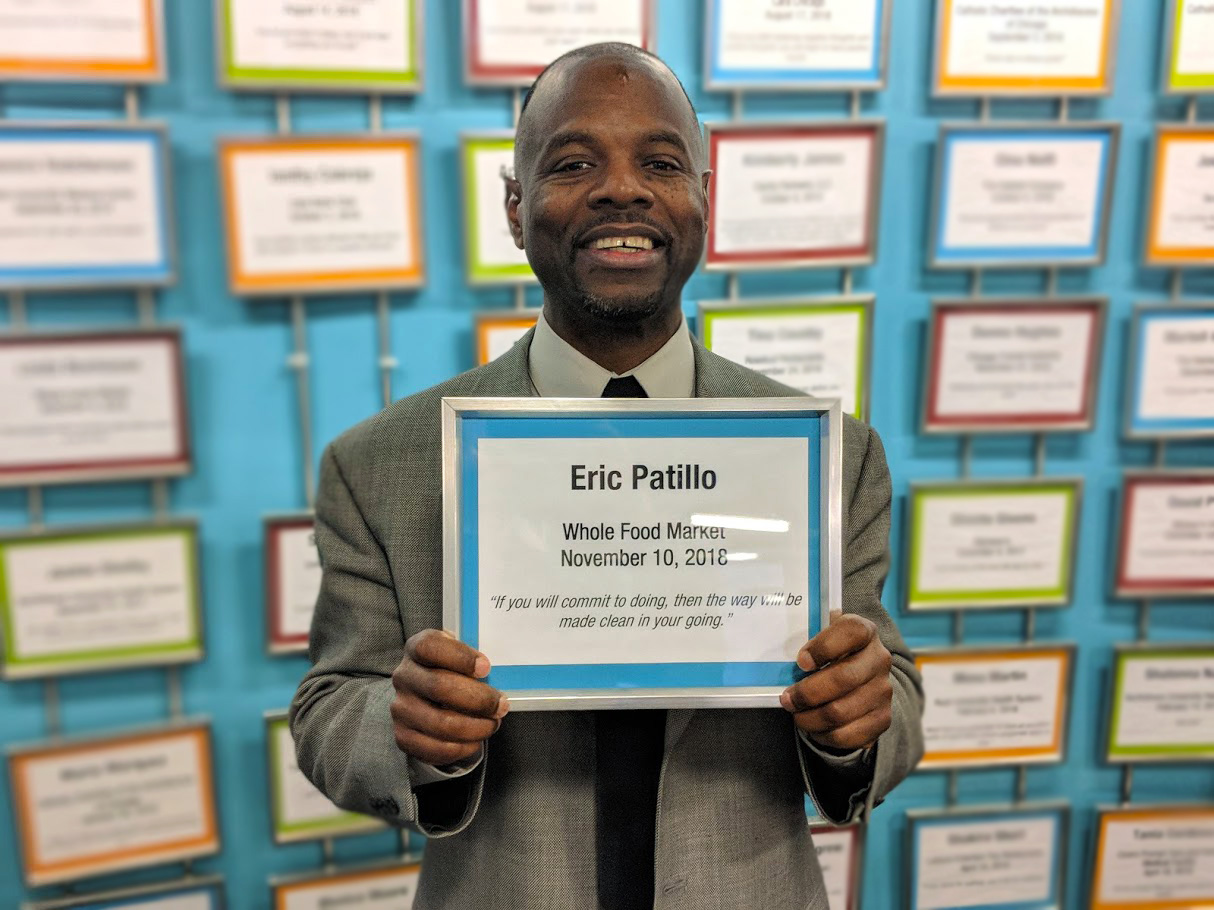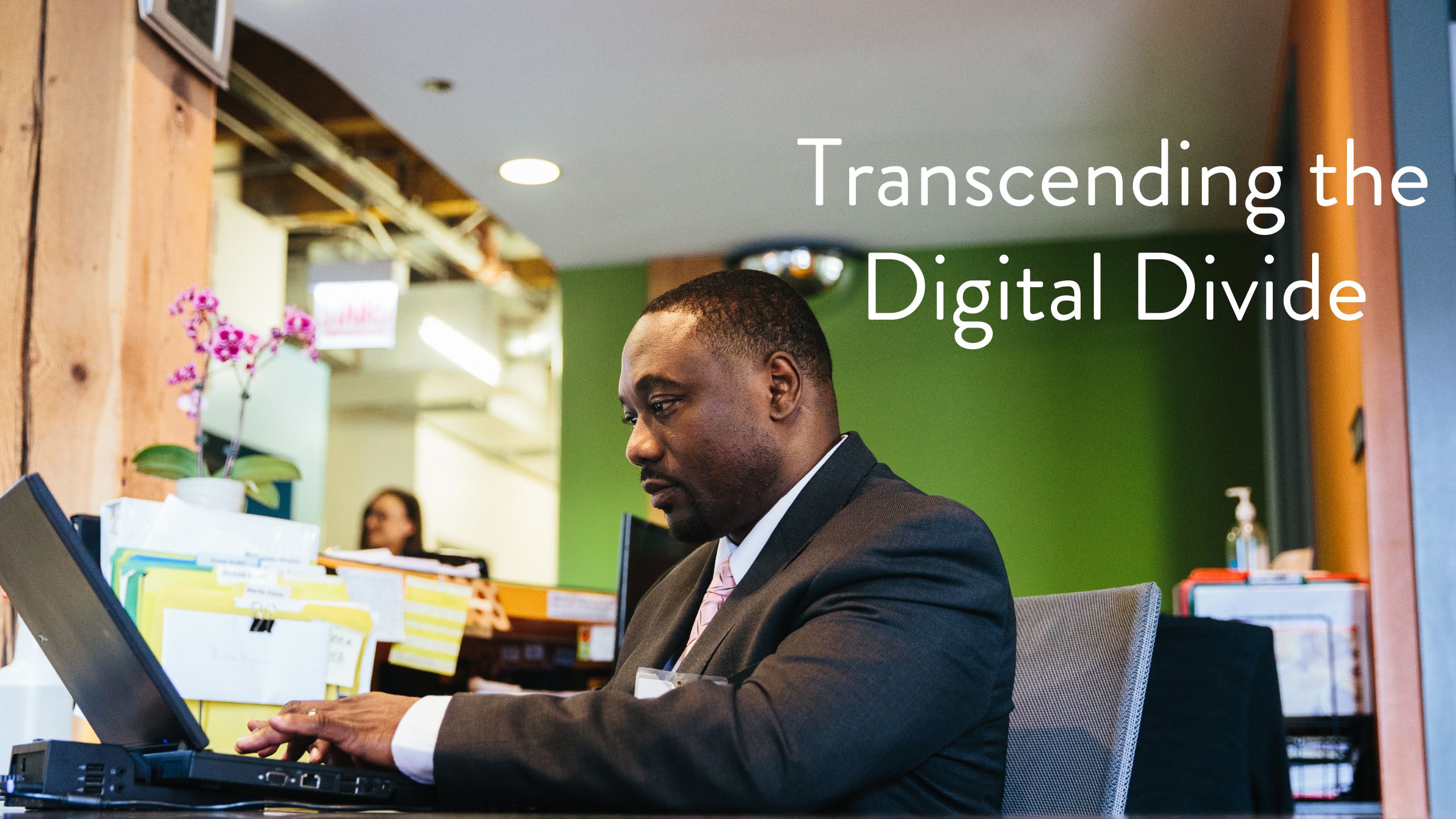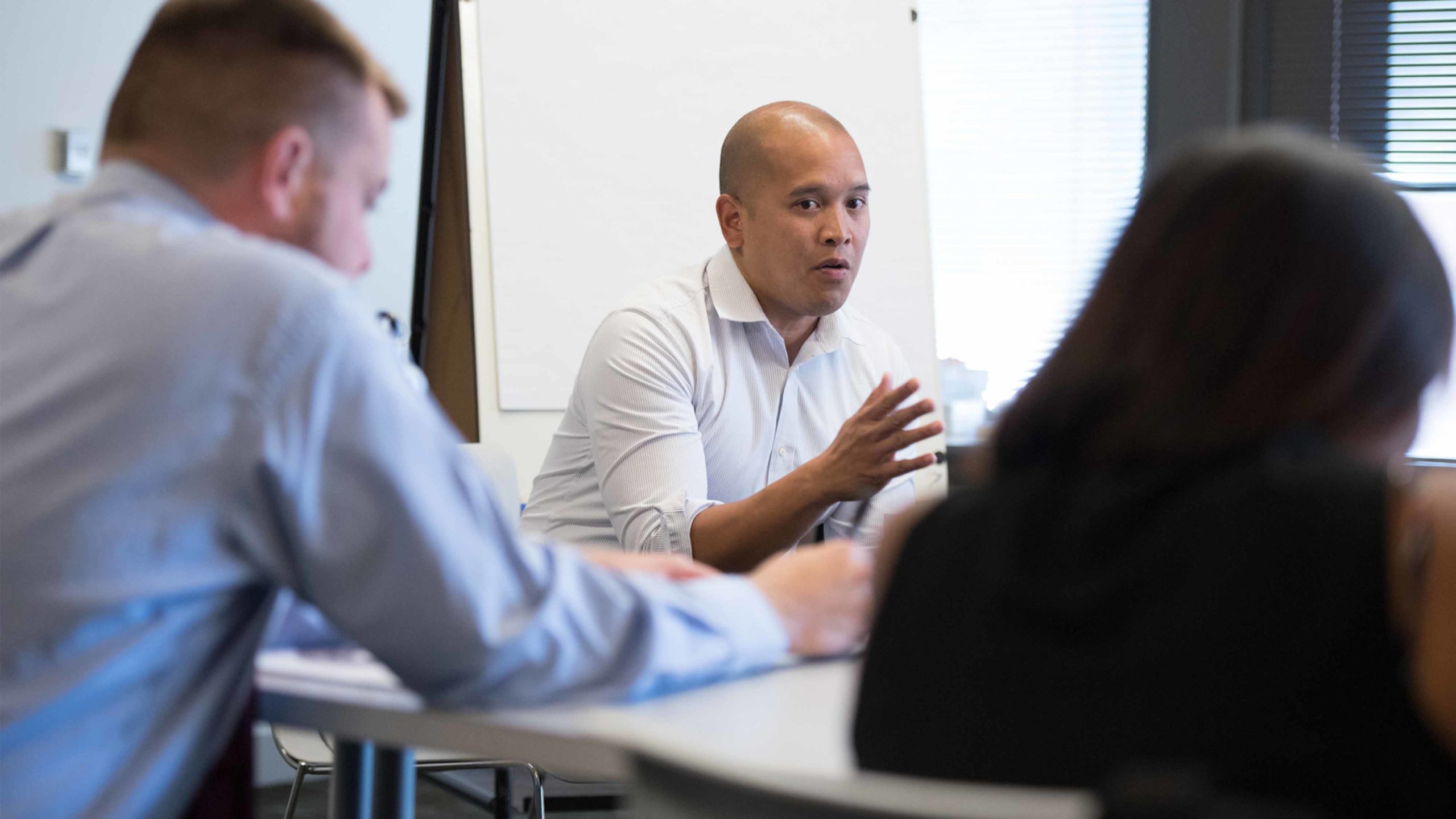A Tale of Two Social Enterprises
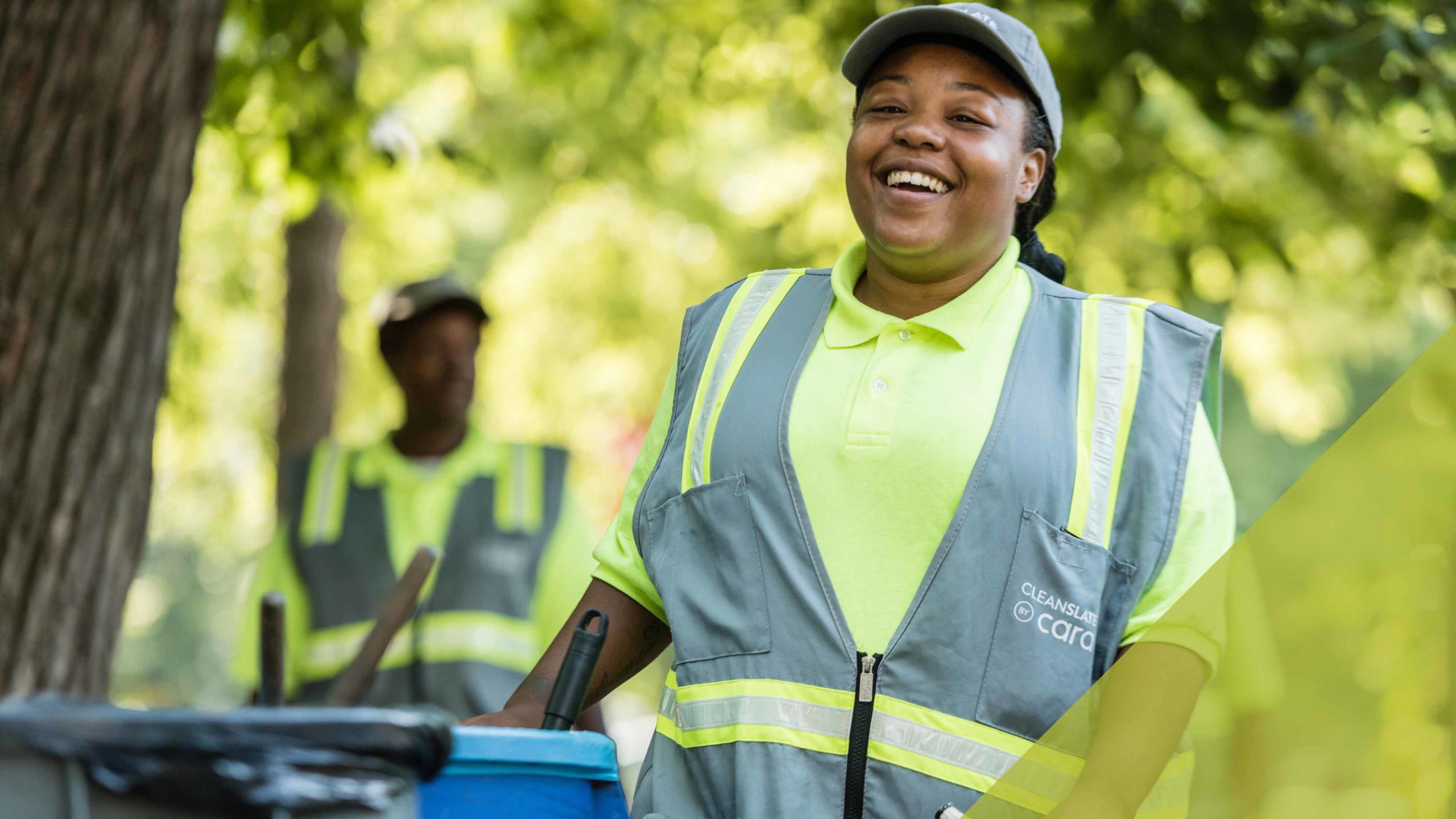
How Cleanslate and Cara Connects adapted to stay open during the COVID-19 pandemic
With COVID-19, our economy is facing new and rapidly evolving challenges. Businesses across the nation have been irrevocably disrupted, and employment social enterprises (ESEs) – businesses that create employment and training opportunities for people facing barriers to employment – haven’t been spared. For these ESEs, working from home has not been a realistic option in many cases, and suspending operations would result in a loss of job opportunities for those with barriers to employment, income for employees, and the ESEs themselves. As a result, ESEs that could not operate remotely faced difficult considerations as they determined how to ensure the health and safety of their staff, customers, and communities. This tension was equally true for Cara Collective’s two social enterprises – Cleanslate and Cara Connects – which provides transitional employment to individuals experiencing hardship or poverty to get them on the path to self-sufficiency. The following document outlines how our social enterprises recently shifted their approach and what we learned along the way.
CLEANSLATE
As an ESE owned and operated by Cara, Cleanslate is a small but mighty cleaning machine (or exterior maintenance business, as we call it), providing ordinary services in an extraordinary way. Differentiated by our fast and friendly service and deep commitment to the community, Cleanslate provides litter abatement, light landscaping, and snow removal so that neighborhoods in Chicago, Aurora, and Gary, Indiana can take pride in the safety, revitalization, and vibrancy of their streetscapes serviced by motivated and motivating individuals. By providing 90-day internships to people with high barriers to employment, Cleanslate offers transitional jobs to train and coach participants before they secure long-term employment.
When the pandemic hit, Cleanslate was serving 43 neighborhoods for customers like business districts, special service areas, and private companies. By then, Cleanslate had enabled 3,400 Cara participants to work in 4,642 transitional jobs – with more than 1,100 of those individuals going on to secure long-term employment. Additionally, Cleanslate interns had removed 13,819 tons of garbage from corridors and communities, and diverted 4,271 tons of recycling from landfills. By 2020, Cleanslate’s total community reinvestment was well above $29 million.
With 15 years on the ground, Cleanslate’s model for recruitment and onboarding had evolved over time. Prior to COVID-19, Cleanslate’s customer base was rapidly growing, prompting Cleanslate to create its own recruitment capacity. Historically, Cara recruited for Cleanslate interns as a shared service across all of Cara’s offerings. While this shared service was efficient, it wasn’t able to keep up with Cleanslate’s growth, resulting in the decision to create a recruitment strategy specifically for the ESE. With time, recruitment and onboarding became a more streamlined and integrated process. Prospective interns would receive a phone call from Cleanslate staff, and then undergo a one-on-one interview in-person. Once accepted into the program, interns would receive two full days of in-person onboarding and training that introduced Cara’s Five Workplace Competencies (Communication, Conflict Resolution, Professionalism, Teambuilding, and Time Management), which is the core of Cara’s professional development training, and what Cleanslate interns would be evaluated on.
In early 2020, Cleanslate was on its way to celebrate its 15year anniversary, with plans to expand its services to Gary, Indiana in a few short months. When Illinois’ Shelter-in-Place Order was announced, all Cleanslate operations were put on pause for two weeks. While it was considered an essential business, we wanted to be certain that Cleanslate could operate safely before hitting the streets. Once we understood what protocols we needed to put in place, we made the quick decision to shift to a fully virtual recruitment and onboarding process for new interns. That process proved easier said than done, as we couldn’t just mirror our regular training online. Not only did we need to zoom in on how to shorten a two-day orientation into a few hours, but staff also needed to complete a thorough review of the in-person onboarding to decide what components were critical to keep up front, and what could be taught on the job.
One example of a shift we made was how Cleanslate adapted its customer service focus. Historically, being a positive brand ambassador was an integral part of being on the Cleanslate route, as interns regularly interacted with neighborhood residents and served as a friendly face for the enterprise. This required a heavy emphasis on interns learning and practicing their customer service pitch during orientation before they started their internship. However, because intern conversations with passersby would be limited with masks and the Shelter-in-Place provisions, this became less of a priority for virtual onboarding and shifted to something they could learn on the job. We also reduced their scope of work to just litter abatement, since there was less demand for other services. This pivot also reduced what they needed to be taught during onboarding, as well as how they would be evaluated by their crew chiefs.
Ultimately, Cleanslate’s first virtual onboarding landed at three hours – with the first portion focused on policies and procedures, including Cara’s Five Workplace Competencies. The second half focused on onboarding specifics such as our uniform policy and safety precautions during COVID-19 (a new addition). The orientation was not without technical difficulties, as some participants had difficulty logging in and getting connected, especially those with limited access to technology. While we did our best to communicate to new recruits about how to access the online onboarding, it was difficult to assess participant engagement and excitement because many were on mute, had their video off, or were calling in. We also learned that our presentation style was not as interactive as it could have been, since our presenters were sharing a lot of information over a short period of time. In the future, we realized that we would have to break-up the first day and allow more of an opportunity for interns to introduce themselves and get to know each other.
Another important shift during virtual recruitment was the decision for interns to receive more on-the-job training and coaching by their crew chiefs, who oversaw their work and provided real-time coaching on site. This was a task that was previously emphasized during in-person orientation, and could not be done as efficiently virtually. Since interns would be learning on the job, crew chiefs loosened up on disciplinary action during interns’ first week, recognizing that they would need to adapt evaluation expectations during this transitional period. For example, interns began getting allotted a 15-minute grace period if they were late, and crew chiefs started showing greater understanding if an intern called off.
Because Cleanslate operates as an essential business, onboarding wasn’t the only thing that had to change: we knew we had to act fast to adapt to new health and safety regulations. Whatever materials the team could not purchase in person, we ordered online in bulk; such as masks and gloves. The trucks were cleaned twice a day, disinfected with a UV wand, and plexiglass was installed between the front and back seats. Additionally, all interns were required to wear masks at all times, and hand sanitizer was made readily available. These protocols were quick and easy to implement, and kept safety top of mind.
To reduce the risk of infection, we also made the quick decision to change up how many crew team members would be working together at one time. While a crew usually consisted of five people, this was decreased to three interns and one crew chief to lessen exposure. This tradeoff required crews to work longer shifts to make up for their smaller teams. While we brought on less interns overall, those interns received additional hours.
We recognized the increased risk of returning to work, so we incorporated hazard pay at an extra $2/hour for both crew chiefs and interns. To maximize safety, staff and interns also began having their temperatures checked and crew chiefs had to start to observing intern symptoms – sending interns home when symptoms were exhibited. Finally, to maintain special distancing, interns and crew chiefs also could no longer eat together, and had to trade off taking lunch shifts.
As interns began in this new environment, we noticed that many of them were dealing with myriad issues outside of work – some risked losing their spot at shelters by going in and out, while others did not have access to transportation or safety gear. These changes pushed us to reconsider our return to work HR policy for Cleanslate interns, including providing extra support that interns needed. To get a better pulse on intern needs, Cara’s Administrative Assistant began doing safety checks with them. In these conversations, interns were asked a series of questions: Do you have access to personal protective equipment (PPE)? Do you feel safe and healthy? What support do you need? Interns appreciated this additional touchpoint, as it helped Cleanslate better support them based on their needs.
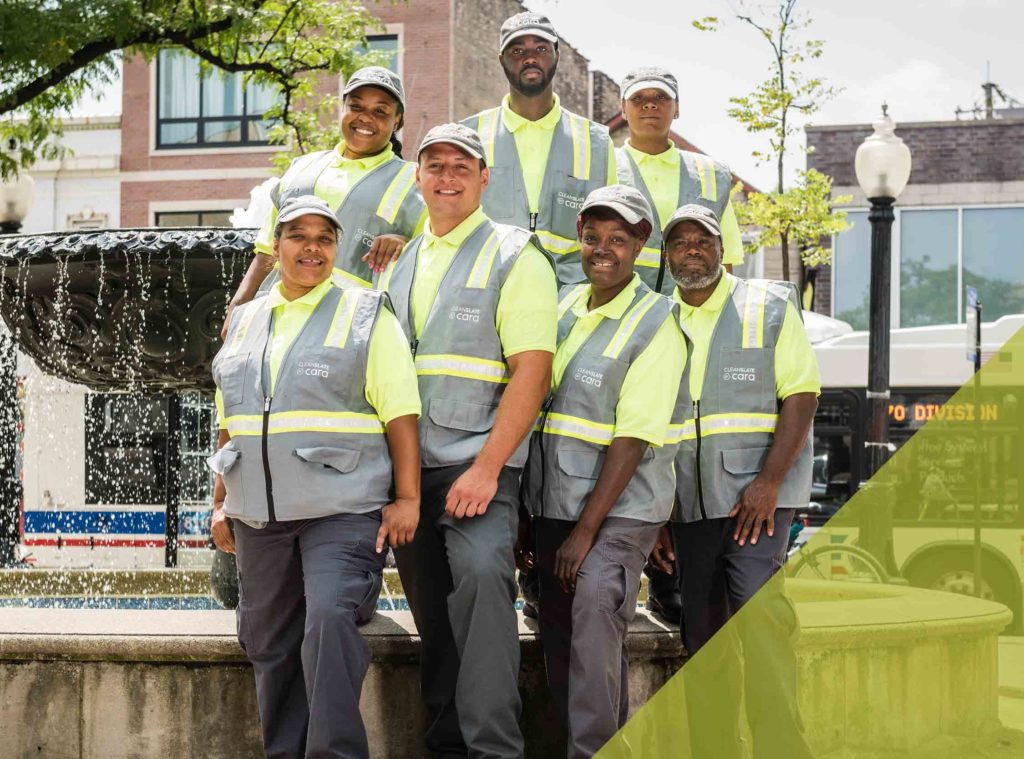
“As interns began in this new environment, we noticed that many of them were dealing with myriad issues outside of work – some risked losing their spot at shelters by going in and out, while others did not have access to transportation or safety gear.”
Amidst the new environment, we also recognized that we needed to provide extra grace and understanding as staff processed the changes. Some staff were very vocal about wanting to get back to work, while others did not yet feel comfortable returning but had to. We recognized the increased risk of returning, so we made the business decision to take on the additional cost of incorporated hazard pay, only asking customers to make up the difference if they wanted to.
Finally, with spatial distancing and programmatic changes in place, we recognized that the ways in which we are interacting with and evaluating interns needed to shift. Friday Motivations was suspended indefinitely, which was previously an opportunity for staff to check in with interns in person, and connect them with resources such as their weekly bus cards. With this program touch point on pause, crew chiefs became the main point of contact to pass out bus cards since many staff are working from home.
Ultimately, it was 100 little decisions that made the difference – from shifting to a shortened onboarding process; to putting new safety precautions in place; to creating new responsibilities for crew chiefs; to figuring out how to support our interns and staff. While we’re still learning and listening to our stakeholder needs, making quick pivots in line with medical guidance has enabled us to continue providing transitional jobs for those who need it most.
CARA CONNECTS
In 2013, Cara Connects – a $1.2 million revenue-generating, mission-driven staffing firm that places people affected by poverty in temporary to permanent jobs in Chicago– was born. Cara Connects has always taken a place-based approach to grow strategically in the demographics it serves. That’s because Connects’ model is rooted in meeting people where they are and building relationships through community partnerships. Since 2013, Connects has employed more than 743 people in 1,200 temporary jobs, and has worked with 20+ partner companies, including the Northwest Side Housing Center, the Habitat Company, and Catholic Charities. Our one-year, same-firm retention rate lands at 83%, with an average hourly wage of $12.18.
When the pandemic hit, Connects faced a challenge much like Cleanslate: the need to transition to digital engagement and onboarding in place of meeting in-person. Similar to Cleanslate, we had to think through the best format, platform, and way to communicate to participants. To inform this decision, we first assessed current participants and prospective recruits to understand their capacity and level of comfort to call into a virtual training, considering questions like whether they had access to technology such as a laptop. Recognizing that most people could access some level technology, we jumped in to the virtual world, but learned that modifications would be needed to provide the most access and comfortable experience.
For our first attempt, we launched our first virtual Connects onboarding in early May 2020 in the format of two-hour sessions across two days. The first session was held with a small group of less than ten participants, which allowed for more intimate introductions and the ability to dive into Cara’s values and unique approach. To run this session, Connects staff followed a similar procedure to Cleanslate, by completing a thorough review of the in-person onboarding elements to assess what could be kept, what would be nixed, and what had to be adapted. Some workshops that we usually ran during onboarding could not be brought into the virtual agenda because they were too lengthy, so it was decided that onboarded candidates would attend them at a later time. Digital access to complete forms and review the presentations took some work too. For example, while filling out paperwork that could be completed fairly quickly in-person, we found that we had to invest more time and energy to train participants to submit these same documents online. Additionally, we learned that many people had limited options for what software they could access, or had limited internet connectivity. As a result, we decided that the best way to maximize access was to create onboarding presentations in PDF that people could follow without being connected to the internet.
After learning from our first Connects virtual onboarding, we decided to adapt another service: our cohort-based digital literacy training. During this iteration of onboarding, we incorporated multiple facilitators to keep participants more engaged. We also learned the value of recording these sessions, as looking back helped us standardize the virtual onboarding process. Looking ahead, we believe that virtual onboarding will be a positive step to eliminate barriers for those who may not be able to attend in-person onboarding – as they can now do it from their homes.
“We first assessed current participants and prospective recruits to understand their capacity and level of comfort to call into a virtual training, considering questions like whether they had access to technology such as a laptop.”
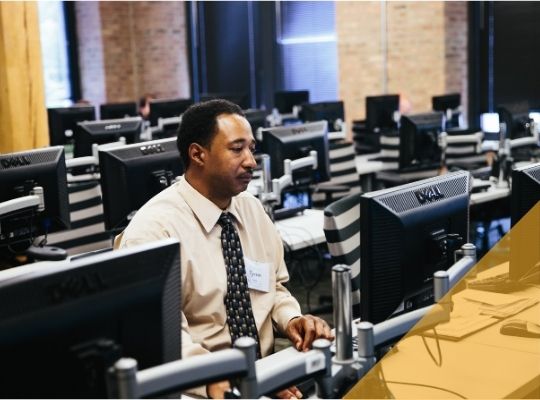
While some of Connects obstacles were similar to Cleanslate’s, there was a different challenge they needed to solve for: Cleanslate operated the working environment for its workers, while Connects’ temporary jobs were with outside firms, providing us with less visibility into the working environment amidst COVID-19. While conversations with employers were always a priority for Connects, this became especially true during this time. As the pandemic took hold, we started adding new questions to our partner touch points to understand what their return to work and safety procedures were, thus informing our own return to work policies. We also worked with HR to set up processes that provided COVID-19 Sick Pay for any worker forced to stay home due to COVID.
Additionally, we knew that it was crucial to increase outreach to participants to understand what PPE was being provided to those who were essential workers, and how that was impacting them. Some questions we specifically tried to understand were: Was PPE being offered to temporary employees? Were there any onboarding safety trainings? Was hazard pay included? Recognizing the need for increased touch points, Cara’s Administrative Assistant began offering similar safety and health checks to Connects participants, and we began providing an additional $2/hour as hazard pay for all Connects workers in essential roles, mirroring our policy with Cleanslate. Participants that felt unsafe or did not have access to PPE were supported with additional coaching to figure out where they could access gear, and talk through personal risk mitigation strategies that would help them feel safer. Although hazard pay expired when shelter-in-place ended, Connects worked with the CFO to implement the City of Chicago $1 minimum wage increase (effective July 1, 2020) one month early, in June. We made this decision to prioritize our support for essential workers still out on the field, recognizing that on top of a pandemic, safety concerns were heightened due to social unrest and growing momentum of the BLM movement.
LEARNINGS
To any organization considering re-opening, Cleanslate offers the following lessons learned: first, it’s crucial for staff to log everything you’ve done when pivoting to a virtual onboarding space, and shift paperwork to electronic platforms to make them easily accessible – a lesson learned by Connects as well. We realized that while it was easy to have new interns sign paperwork in-person as we talked them through it, it was important to streamline
the process to make it more digestible virtually. Our current electronic onboarding paperwork is sent in a single email and includes tax forms, direct deposit information, and a new intern hire packet. The new hire packet has been streamlined to include our code of conduct, uniform policy, and background request form.
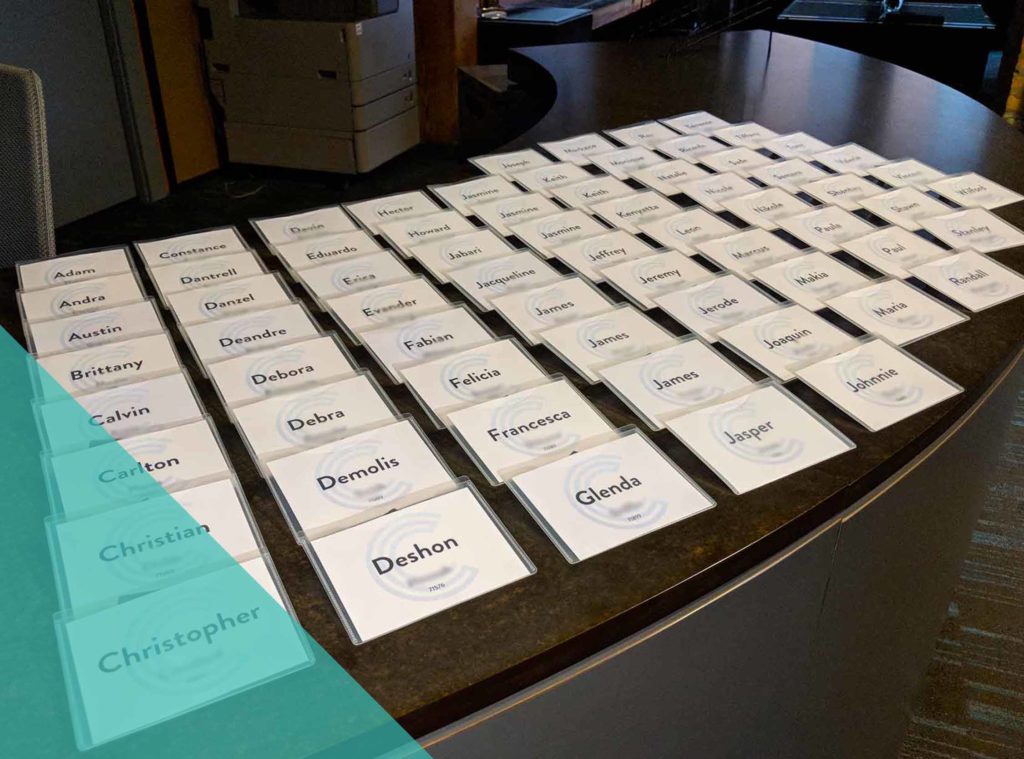
“We first assessed current participants and prospective recruits to understand their capacity and level of comfort to call into a virtual training, considering questions like whether they had access to technology such as a laptop.”
Cleanslate also learned to maintain a sense of grace and empathy when restarting the enterprise – especially as we figured out the best way to connect with and recruit new interns. During the initial transitional period, it was important to identify who was responsible for different tasks across the enterprise. For example, it became necessary to provide crew chiefs with increased responsibility to coach and train interns on the job, a role that would have previously been handled by staff who ran orientation. Restarting business also required a lot of conversations with staff, and added flexibility for those working from home and learning how to do their jobs remotely. To help with this, Cleanslate integrated daily check-ins to ensure staff were aligned on pivots. Finally, operating amidst COVID-19 was an important reminder that regardless of the situation, people come first. That our interns and crew chiefs were navigating risks, childcare, and taking care of their families, and to help them through it, we needed to provide additional support and grace.
While Connects had similar learnings, our different circumstances surfaced new learnings as well. For example, to enterprises considering re-opening, Connects recommends that organizations equip participants with the information they need to decide what’s best for their unique situations. This required us being clear about what they could expect from Connects, what was expected from them, and what would be provided by their employer. We also learned it was okay to take time to reopen and develop a plan that maximized the safety and effectiveness for our participants. In doing so, we realized that our onboarding process needed to be co-designed to include representation from job seekers themselves. It also reinforced the value of incorporating strategies that take on a trauma-informed approach, including building in frequent safety check-ins and access to PPE for participants. From an employer perspective, we learned the importance of adding new screening and check-in questions to ensure that participants’ needs were being met, and that they felt comfortable returning to a safe workspace. Most of all: we’ve affirmed the importance of staying in close communication with our customers as we continue to adapt and learn.
As we continue to adapt, we’ll provide updates on Cara Plus’ LinkedIn page so that as we learn, you learn too. We also know that we’re in a constant state of learning and experimentation. If you or your ESE has pivoted its approach or if you’d like to be highlighted on our social media, message us at learn@caraplus.org.
